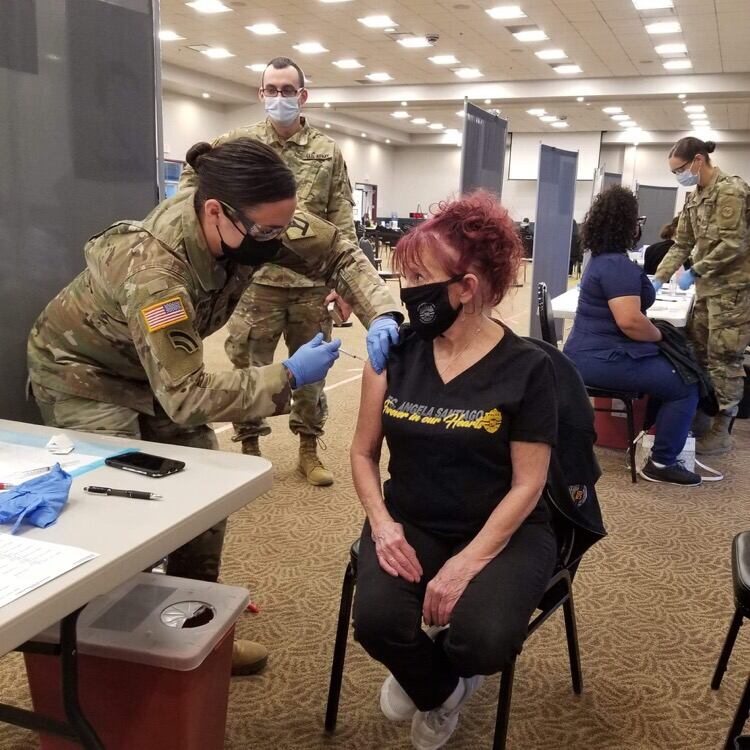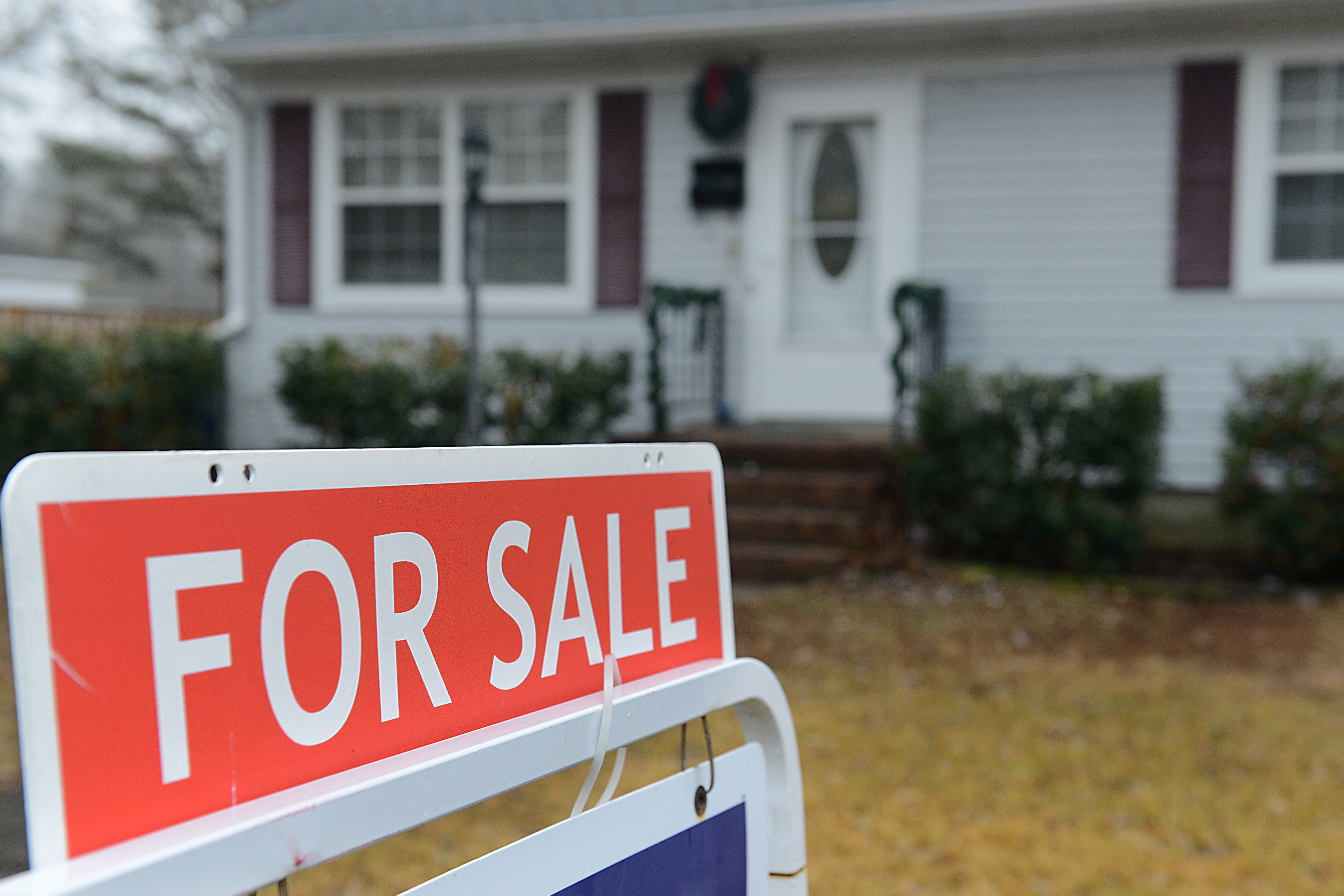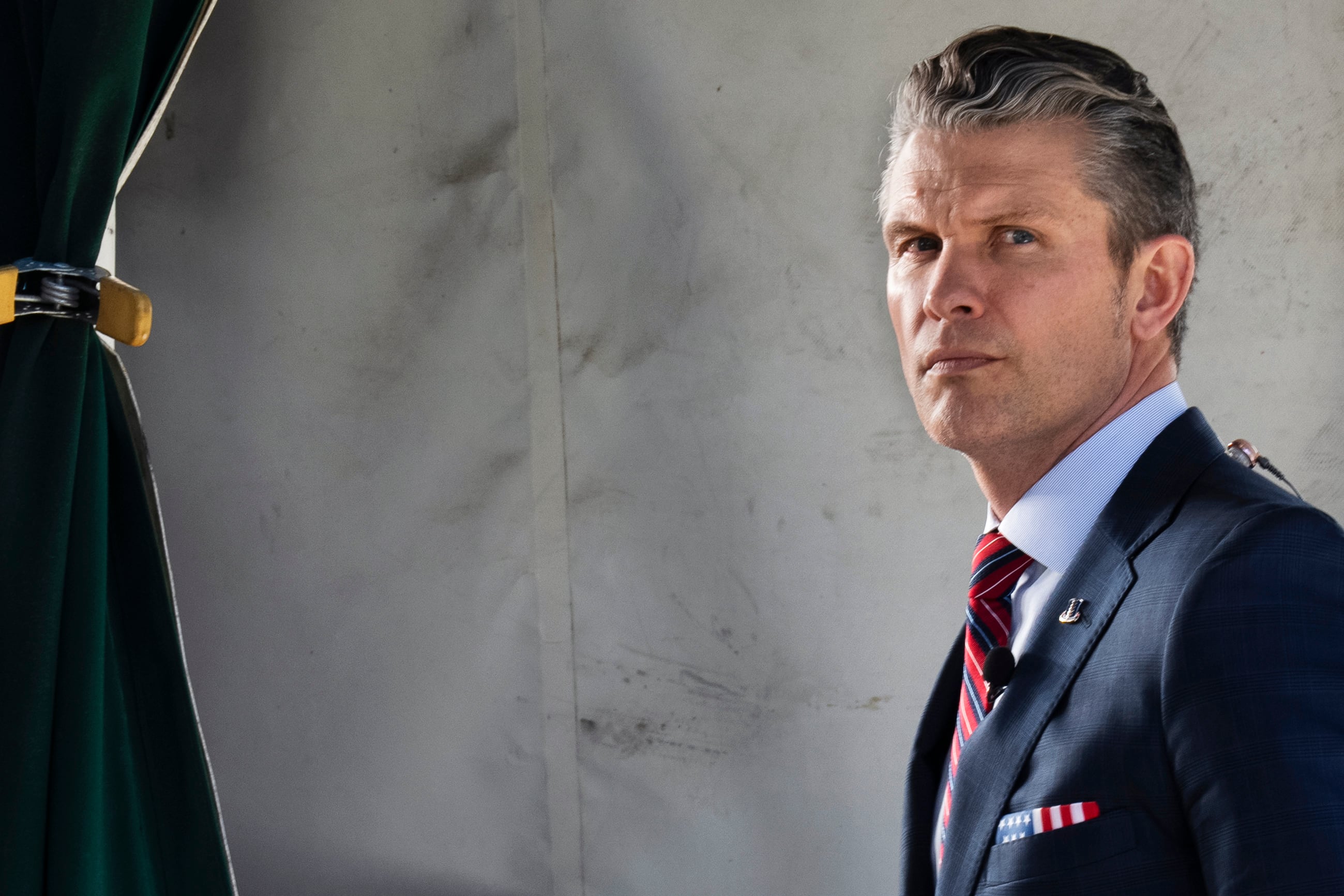More than 6 million Americans have received their COVID-19 vaccines through the National Guard as of April 7.
“We just reached this yesterday — over 6 million COVID vaccines [administered] to our citizens across the nation,” Army Col. Larry Fletcher, deputy director of the National Guard Bureau joint surgeon’s office, said during a Thursday media roundtable.
“Right now, we have over 31,000 Guardsmen directly supporting COVID operations,” said Fletcher. “[We are] involved in administration at nearly 1,000 vaccine sites across 40 states.”
The pandemic response has been a unique period of extended domestic service for National Guard troops working to help out in their own communities.
But for two of the roundtable’s participants — Army Spc. Garett Rollag of Nebraska and Staff Sgt. Shavonne Santiago of Massachusetts — the connections are more personal. Both soldiers recently vaccinated their own grandmothers while working in community vaccination clinics.
“I had the opportunity of vaccinating my grandmother,” confirmed Santiago, who is administering shots at a community clinic in Brockton, Massachusetts. She is a combat medic assigned to Massachusetts’ 101st Engineer Battalion.
“With her being 74 with comorbidities, it was very important for me to educate her on the vaccination process...It was incredible and now we can share those hugs...without fear of her potentially contracting the virus.”

“I actually administered both doses to my grandmother,” said Rollag, who is a combat medic assigned to Nebraska’s 2nd Battalion, 134th Infantry Regiment. He is currently vaccinating the public at a site in his hometown of Omaha, Nebraska. “It’s also been really nice seeing a bunch of other people that I know — I saw my high school counselor and got to give him his vaccinations.”
Rollag also was mobilized in spring 2020 to assist Nebraska National Guard’s COVID testing teams. He reflected on how the mission has evolved over time. “Initially when I was doing testing, every now and again someone would ask, ‘When’s the vaccine coming?’ And it’s nice to at least feel like things are finally starting to have a change towards normal again...it’s a really nice relief.”
Asked to describe her feelings about being on the front lines of ending the pandemic, Santiago said it feels “wonderful.”
“We have answers to [the community’s] questions. We have the ability to give them what they need to protect them, keep them safe, keep their family safe. It’s a hope for us to again get back to our normal life and hold each other again.”
“I was mobilized first to support COVID last February,” said Air Force Col. Russell Kohl, commander of the Missouri Air National Guard’s 131st Medical Group. “I’ve got to echo...[Santiago and Rollag] on the situation that we were in back then versus now. And that sense of hopefulness for the future, that sense of recognizing that you have more tools in your tool bag that you can use for the situation.”
Kohl also emphasized that the fight against the pandemic isn’t over yet. “There are lots of different tools that go into place in order to help us get through the COVID pandemic. Vaccinations are an incredibly important part of that. But that’s not the only tool...I think it’s important for folks [to follow CDC guidelines], regardless necessarily of what your local policies are.”
Davis Winkie covers the Army for Military Times. He studied history at Vanderbilt and UNC-Chapel Hill, and served five years in the Army Guard. His investigations earned the Society of Professional Journalists' 2023 Sunshine Award and consecutive Military Reporters and Editors honors, among others. Davis was also a 2022 Livingston Awards finalist.





